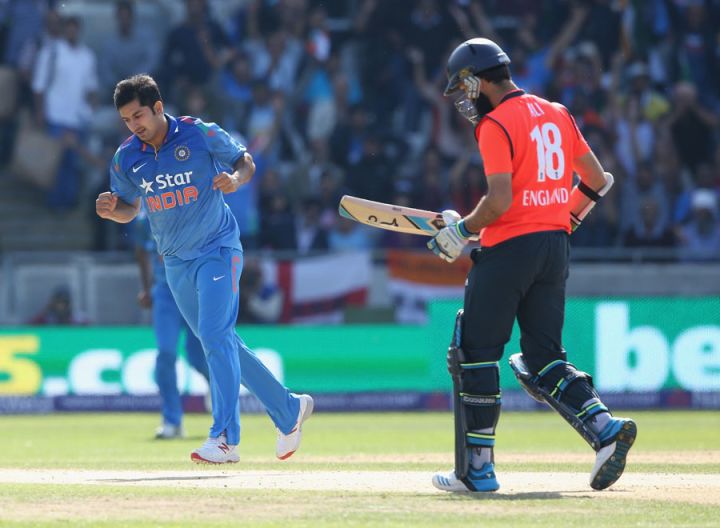Why are England forever in transition?
Let's just admit it, the word is now just a euphemism, used to explain the standing of a team that was never very good at ODI cricket

The ICC has announced its ODI Team of the Year. There are no England players in it, for obvious reasons. And we all know the main one - England are a team "in transition". In fact, the England ODI team has been in transition since 1992, before the notion of being "in transition" had even been thought of.
Since then, five World cup tournaments have passed, along with numerous Champions Trophy competitions and countless tri-series and bi-series, one-offs, warm-ups, warm-downs, mini-tours, and other apparently vital engagements, and England have transitioned their way through all of them, without notable success. Even when - by statistical anomaly, flukes of the calendar and lots of home games - they briefly became the No. 1 ODI team in the world (yeah, right) they were still in transition.
And as the next World Cup approaches, England are in their traditional pre-tournament holding pattern of not really knowing what their best team is, or how it should play, or even who should be captain. If the standard model holds, they'll be thrashed a few times on the forthcoming tour to Sri Lanka, while the warm-up tri-series against Australia and India will be best viewed from behind the sofa. There will be the panicky last-minute squad selection, the banana-skin group match against an Associate nation (where some bum-fluffed trainee bank clerk or 17-stone policeman will have taken time out from the day job to launch England's storied attack for an 80-ball century), then a grim elimination, a resignation or two and the announcement: "We're back in transition, building for the next World Cup…"
England will have transitioned seamlessly from one transition to another without ever actually having come out of transition.
Okay, I'm laying it on thickly, but transition has become one of the great sporting euphemisms. Its meaning is rarely challenged or examined. Does it exist? Has any team actually been in it?
By definition, transition suggests movement from one state to another. Its nature is to be impermanent, perhaps even fleeting, certainly controllable. It implies some kind of plan, an understanding of the natural boom-and-bust cycles of sporting success. It's a sort of "bear with us, we know it's not right at the moment, but we know what we're doing…" stage that most successful projects go through.
As such, it just about holds water as a principle in cricket, where teams are constantly managing change while trying to maintain the stability of their performance and to propagate their philosophy. When a truly great team emerges - the Australian dynasty that took three successive World Cups for example - the core is strong and the changes are minimal and deliberate. Arguably, this is genuine transition, or at least it is successful transition. Nothing about sport can be entirely controlled, but transition of this style ensures that the negative impact of change is small.
Instead, the great transition euphemism has been used as a lingual tool to manage something else: the expectations of those outside of the team. It has become a plea for patience in the face of chaos, or a handy catch-all phrase that describes a team that isn't doing what it has been designed to do. Transition is less of a genuine state and more of a decent excuse.
The truth about England's ODI side is that they are not very good. It's the usual position of England's ODI side. It's the norm, the mean, the average. England have never taken the format to heart the way that India has. They have never played it with the steamrollering, bloody-minded intensity of Australia or the freewheeling joy of West Indies or the inventive daring of Sri Lanka and Pakistan. On the whole, England have got what they have deserved: the odd near-miss.
That's okay. But let's call it what it is. Or at least let's stop calling it what it's not. It's not transition if you never really do anything else.
Jon Hotten blogs here. @theoldbatsman
Read in App
Elevate your reading experience on ESPNcricinfo App.